 Server
Colocation
Server
Colocation
 CDN
Network
CDN
Network
 Linux Cloud
Hosting
Linux Cloud
Hosting
 VMware Public
Cloud
VMware Public
Cloud
 Multi-Cloud
Hosting
Multi-Cloud
Hosting
 Cloud
Server Hosting
Cloud
Server Hosting
 Kubernetes
Kubernetes
 API Gateway
API Gateway

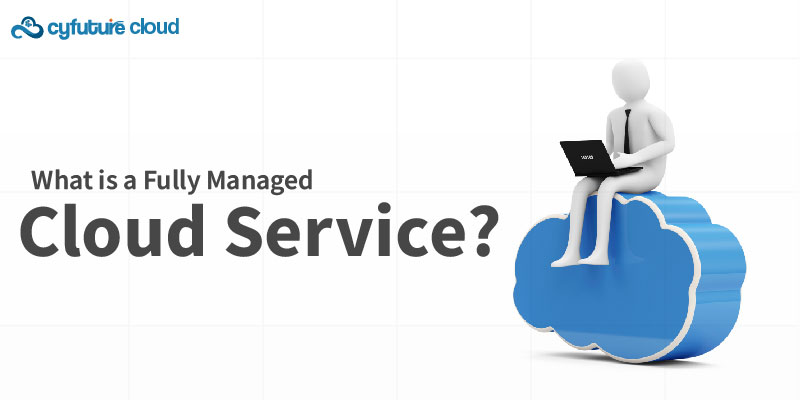
The demand for cloud computing solutions has soared in the recent past. However, the implementation of cloud services has its provisions to execute which is often not an easy task. This is where managed cloud services come in handy.
In this article, the focus will be on the following questions What are the managed cloud services? Why are they crucial to organizations? What are the types of managed cloud services? And what aspects should organizations consider regarding managed cloud services?
A managed cloud service is a model of Cloud computing in which a third-party service provider assumes the responsibility of managing and supporting users’ cloud infrastructure and resources. This service may range from simple services like monitoring, security, backups, and recovery alongside managing cloud environments for the businesses; thereby enabling these organizations to concentrate on their areas of strength and not the details that cloud environments entail.
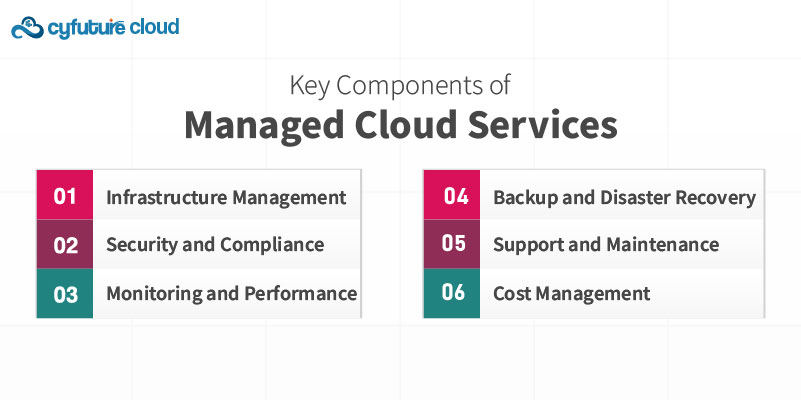
Infrastructure Management: Providers make sure that hardware platforms such as servers, storage systems, and networking are well maintained and aligned to meet the service requirements.
Security and Compliance: Outsourced cloud solutions usually feature good security measures integrated and guarantee compliance with the industry laws.
Monitoring and Performance Optimization: Regular checking of Cloud resources in order to determine and fix flaws that may affect the optimum performance of the Cloud.
Backup and Disaster Recovery: Backup schedules and performing of disaster recovery procedures to keep data secure and the business running.
Support and Maintenance: IT supports a cloud environment 24/7 and routine maintenance, including technical support, upgrades, and backups.
Cost Management: Leverage of cloud resources in order to address issues to do with costs and optimization of returns.
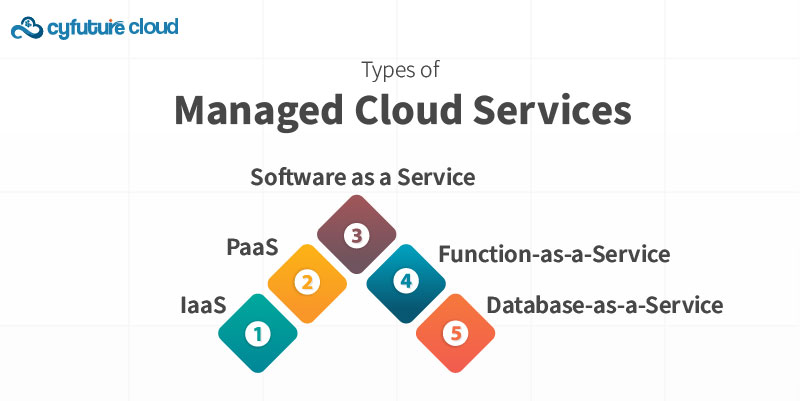
IaaS: Management of virtualized computing resources over the internet.
PaaS: Here, the management refers to hardware and software tools that are used for developing an application.
Software as a Service: This refers to managing applications of software that come over the internet.
Function-as-a-Service - FaaS: Cloud provider fully manages the code execution on serverless computing platforms not even allowing the user or owner of the code unrestricted direct access.
Database-as-a-Service - DBaaS: This will concern the management of the Database systems in a cloud environment.

Expertise and Skills: The advantage of getting a group of dedicated cloud professionals on your payroll without the need for training and recruitment of specialists.
Cost Savings: Lesser capital outlay and operating cost through management of the own data center infrastructure.
Scalability: A particular feature of resources is that these are easy to increase or decrease depending on the needs of the business.
Enhanced Security: Advanced security with frequent updates against evolving threats.
Improved Performance: Applications will be much better in terms of overall performance and user experience, as cloud resources are optimized.
Core Business Focus: Releasing internal IT resources to perform tasks on strategic business initiatives, not day-to-day management. 24/7 Support: Problem-solving through constant monitoring and support. Compliance: Services to support meeting industry-specific compliance demands.
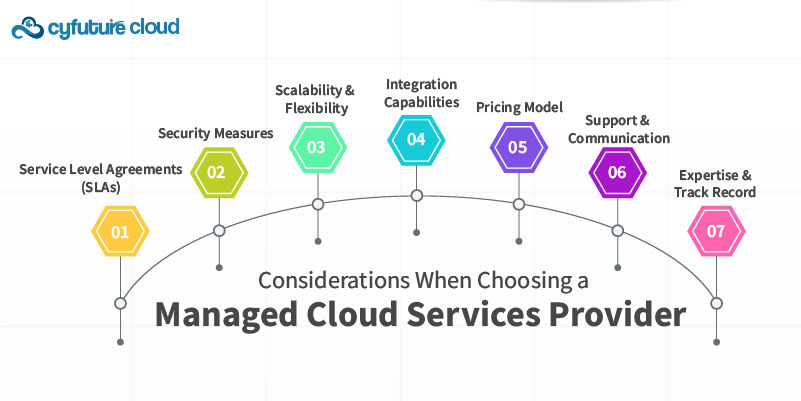
Service Level Agreements (SLAs): Ensure the provider offers SLAs that align with your business needs and expectations.
Security Measures: Evaluate the provider's security protocols, certifications, and compliance capabilities.
Scalability and Flexibility: Choose a provider that can accommodate your growth and changing requirements.
Integration Capabilities: Ensure the service can integrate seamlessly with your existing systems and workflows.
Pricing Model: Understand the pricing structure and ensure it aligns with your budget and expected usage.
Support and Communication: Assess the level of support offered and the communication channels available.
Expertise and Track Record: Look for providers with experience in your industry and a proven track record of success.
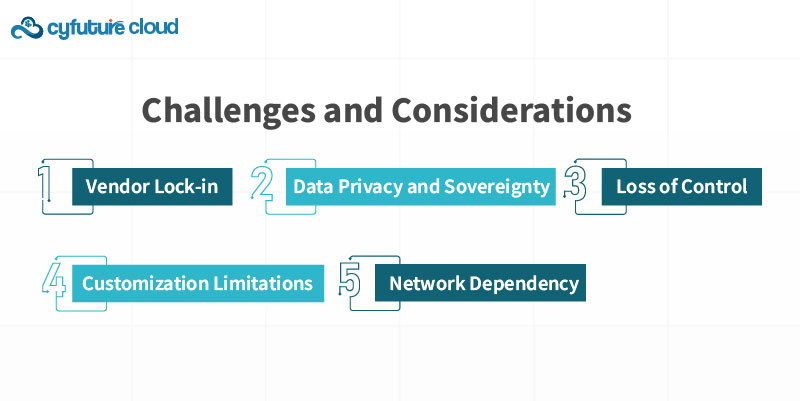
While managed cloud services offer numerous benefits, there are some challenges to consider:
Vendor Lock-in: It means that it might be not very easy to switch between the services provided by a certain company in the future.
Data Privacy and Sovereignty: Make sure the provider obeys state data protection laws in your state.
Customization Limitations: Some of the managed services may be generalized therefore it has set rules as to how feasible it can be customized.
Loss of Control: Businesses may have less direct control over their IT infrastructure.
Network Dependency: Reliance on internet connectivity for accessing cloud resources.
Outsourced cloud services are especially appealing to enterprises that are keen on utilizing cloud technology without handling the responsibilities of day-to-day maintenance. Outsourcing reduces the involvement of a company in complicated processes as this is done by expert providers to increase security, and scalability and reduce costs while companies get to focus on growth and innovations.
With more establishments being realized in areas like cloud computing, managed cloud services are expected to be useful since more business entities will continue to find it challenging to understand this new world of technology. The choice of the adoption strategy cannot be done without understanding the providers, and the needs that the company has, and it is also essential to select the right strategy that can be very important in the long run.
Managed cloud services allow organizations to fully unlock the potential of Cloud computing while at the same time still avoiding potential pitfalls and losing out on potential returns.

Let’s talk about the future, and make it happen!
By continuing to use and navigate this website, you are agreeing to the use of cookies.
Find out more


